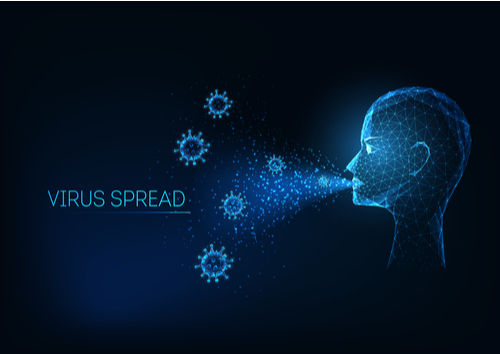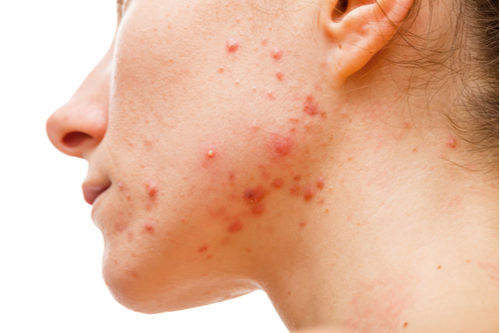General Health
Transmission To Treatment - 9 Important Facts On The Monkeypox Virus
3 min read
By Apollo 24|7, Published on - 20 May 2022, Updated on - 16 June 2023
Share this article
0
87 likes

Just when the trepidation related to COVID-19 started weakening, a new virus found an opportunity to stir up anxiety, worldwide. On April 9, 2022, the UK Health Security Agency reported the first case of monkeypox. The rare viral infection was found in a person who recently visited Nigeria. Since then, more than 16000 cases of monkeypox have been reported in around 75 countries, including India, which has reported 4 cases so far. After the outbreak of this new virus, the World Health Organization (WHO) has urged the countries to take action to stop the transmission and protect those at high risk.
History of Monkeypox Virus
Monkeypox was first identified in a 9-year-old boy in the Democratic Republic of the Congo in 1970. Meanwhile, in 2003, for the first time monkeypox outbreak happened outside Africa when 70 cases were reported in the US. The outbreak was linked to some infected dogs that were kept with some Gambian pouched rats imported from Ghana.
Important Facts on the Monkeypox Virus
#Fact 1: The virus belongs to the family of smallpox.
The monkeypox virus is said to be an enveloped double-stranded DNA virus belonging to the Orthopoxvirus genus of the Poxviridae family. It is closely related to the virus that causes smallpox.
#Fact 2: Infection-causing animals are mainly found in tropical rainforests.
The virus is mainly seen in animals like tree and rope squirrels, dormice, non-human primates and Gambian pouched rats, found in tropical rainforest areas like Central and West Africa.
#Fact 3: The infection transfers from animals to humans.
The monkeypox virus is a viral zoonotic disease, which means it can transfer from animals to humans. It gets transmitted to humans when they come in close contact with an infected person or animal and contaminated materials.
#Fact 4: Human to human transmission of the virus is possible.
Between humans, the monkeypox virus gets transmitted through body fluids, sexual contact and respiratory droplets.

#Fact 5: The symptoms of the viral disease may appear after 21 days.
The incubation period of the monkeypox virus can range from 6 to 13 days to 5 to 21 days. The symptoms are most likely to appear after the end of the incubation period.
#Fact 6: The severity of the symptoms may increase gradually.
The first five days are coined as the invasion period in which the infected person will have a fever, back pain, muscle aches, intense headache, lack of energy and swelling of lymph nodes. The skin eruption on the face, hands and feet usually begins within 1 to 3 days of the onset of fever.

#Fact 7: In most cases, the disease is self-limiting.
Monkeypox is a self-limited disease and the symptoms usually last somewhere between two to four weeks. Some monkeypox cases can also turn severe given the health complications the infected person is already suffering from. As of now, the fatality rate in monkeypox disease stands between 3-6%.
#Fact 8: Health workers are at high risk.
Health workers, who are handling patients infected by the monkeypox virus, and their family members are at high risk. The World Health Organization states that people who have been vaccinated against smallpox should be selected for taking care of monkeypox virus-infected patients.
#Fact 9: There is no vaccine against the Monkeypox virus.
Currently, there is no proven treatment for this viral infection. As per WHO, the first generation vaccinia-virus based smallpox vaccine was found to be 85% effective in preventing monkeypox in the past. In the United States, the JYNNEOS vaccine, licensed for preventing smallpox, is also currently licensed to prevent monkeypox. The Centers for Disease Control and Prevention (CDC) in concurrence with the Advisory Committee on Immunization Practices (ACIP) recommends the vaccine be administered 4 days from the date of exposure.

Still recuperating from the effects of COVID-19, the world is actually not prepared to witness yet another pandemic. And the only way to prevent that from happening is by dissipating information and keeping oneself well-prepared in advance.
Medically reviewed by Dr Sonia Bhatt.
General Health
Leave Comment
Recommended for you

General Health
Colorectal Cancer: Risk Factors and Prevention
Learn about the risk factors and prevention strategies for colorectal cancer. Discover the latest guidelines, technologies, and lifestyle factors to protect yourself from this deadly disease.

General Health
Does Acupressure Work? Here's What Experts Say
Acupressure is a complementary therapy that originates from traditional Chinese medicine. While research on acupressure is limited, initial findings suggest it can help alleviate pain and discomfort caused by various conditions. This article underlines how acupressure works and whether or not it is actually effective.

General Health
Mango Is Really The King Of Fruits! Here's Why
Along with their delicious taste, mangoes are a reservoir of nutrients. Read to know how they can benefit your health.
Subscribe
Sign up for our free Health Library Daily Newsletter
Get doctor-approved health tips, news, and more.
Visual Stories

The Best Exercises for Controlling Blood Sugar Levels
Tap to continue exploring
Recommended for you

General Health
Colorectal Cancer: Risk Factors and Prevention
Learn about the risk factors and prevention strategies for colorectal cancer. Discover the latest guidelines, technologies, and lifestyle factors to protect yourself from this deadly disease.

General Health
Does Acupressure Work? Here's What Experts Say
Acupressure is a complementary therapy that originates from traditional Chinese medicine. While research on acupressure is limited, initial findings suggest it can help alleviate pain and discomfort caused by various conditions. This article underlines how acupressure works and whether or not it is actually effective.

General Health
Mango Is Really The King Of Fruits! Here's Why
Along with their delicious taste, mangoes are a reservoir of nutrients. Read to know how they can benefit your health.